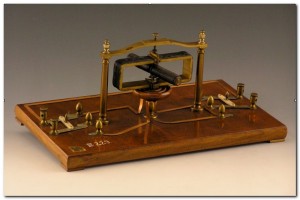 In industrial electric work, the electric-based motor is actually a machine that converts electrical energy into a type of productive mechanical energy. The motor has held a leading role when it comes to the overall productivity of industrial settings. As a result, it is responsible for the high standards that are currently appreciated and enjoyed throughout the world of industry. While the official beginnings of the electric-based motor are a bit of a mystery, we know that the standard principles of the electromagnetic induction were officially discovered within the early part of the 1800s by the individuals named “Oersted”, “Faraday”, and “Gauss”. Later, in the 1800s, Nikola Tesla created a motor that involved an alternating current. This officially started a new age of industrial-based productivity and automation.
In industrial electric work, the electric-based motor is actually a machine that converts electrical energy into a type of productive mechanical energy. The motor has held a leading role when it comes to the overall productivity of industrial settings. As a result, it is responsible for the high standards that are currently appreciated and enjoyed throughout the world of industry. While the official beginnings of the electric-based motor are a bit of a mystery, we know that the standard principles of the electromagnetic induction were officially discovered within the early part of the 1800s by the individuals named “Oersted”, “Faraday”, and “Gauss”. Later, in the 1800s, Nikola Tesla created a motor that involved an alternating current. This officially started a new age of industrial-based productivity and automation.
The most standard principle associated with the operation of an electric motor is that when a conductor that carries an electrical current is introduced to a magnetic field, it will produce a force that is exerted to that conductor that is directly proportional to the flow of the presence electrical current and to the overall strength associated with the magnetic field to which it is introduced. There are several different types of electrical-based motors in production today. The most common, though, are those that operate based on an alternating current induction. “Induction” is a term that is derived from the transference of the power from the stator of a motor to the rotor of the motor through the way of electromagnetic force. Being that the load currents within the rotor of the electric motor are induced by the process of transformer action, these motors are not dependent upon brushes or traditional slip rings.
In the past few years, there has been an emergency of power-based semiconductors and technologically advanced microprocessors that have been able to effectively and efficiently control adjustable-based electric motor speeds through the use of specially-designed inverter-based drives. These, in conjunction with AC drives that are pulse width modulated, have resulted in increased speeds and the regulation of torque within electric motors used in industrial electric work. There are also many direct current electric motors, as this type of motor is considered to be one of the oldest and most versatile motor in the industrial electrical work industry. As a matter of fact, recent breakthroughs in the magnetic materials industry, the introduction of electronic controls in their solid states, and rechargeable batteries that include high-power and a massive level of density has made this type of motor adaptable to many industrial-based settings.
AC and DC electric-based motors must be manufactured in a highly precise manner. This ensures optimal operation in the industrial electrical work setting. Today, industrial electrical work engineers use the laminated stator, the electric motor rotor, and the armature cores in order to successfully reduce the amount of energy losses that occur with electrical motors, as well as to reduce the heat emitted from such sources. If you want to optimize your motors in your industrial setting to increase your productivity, hire an industrial electric work company that is certified and highly-knowledgeable in the endeavor. Contact Hardcore Electric today for more information at: 720-841-3897
